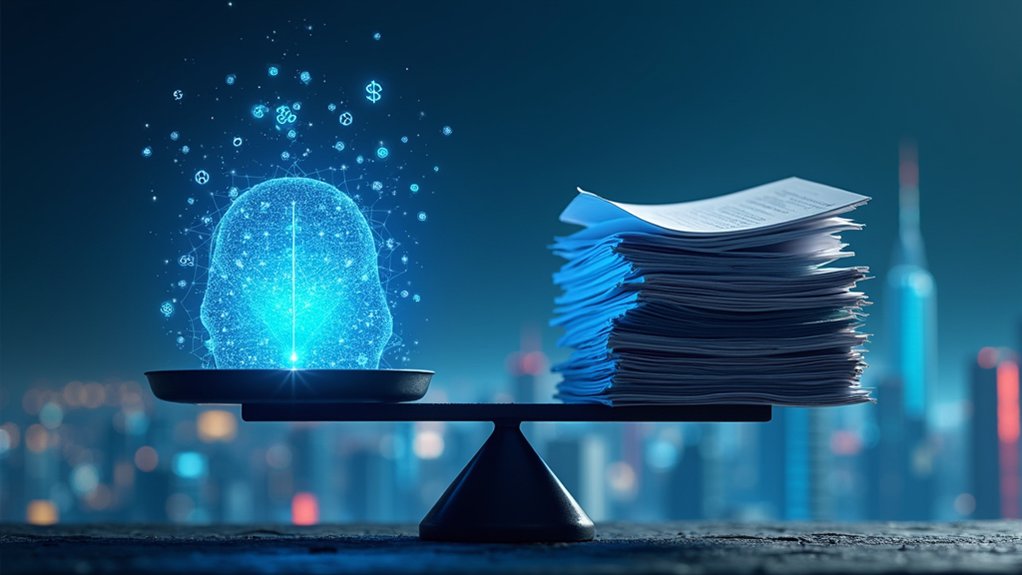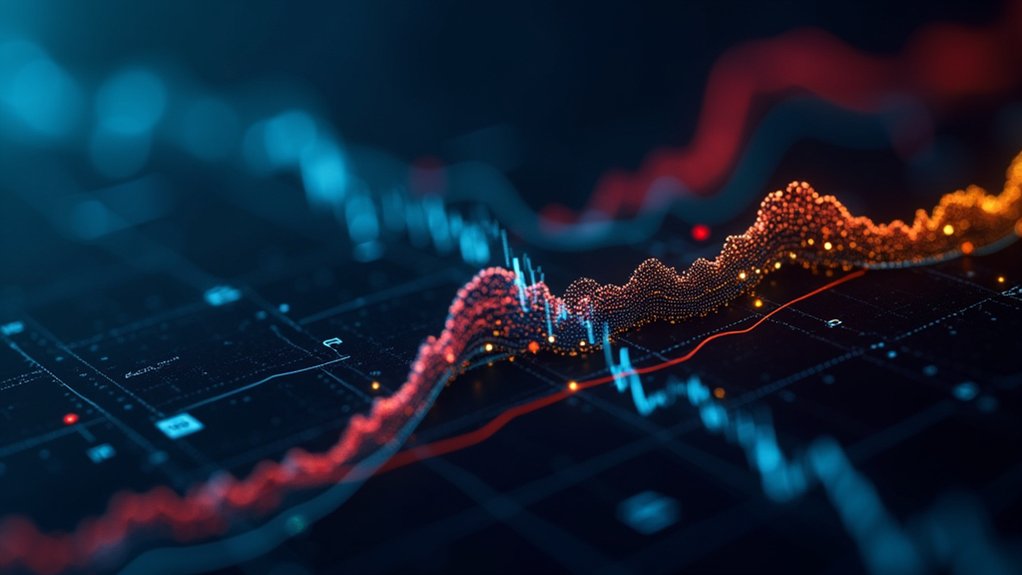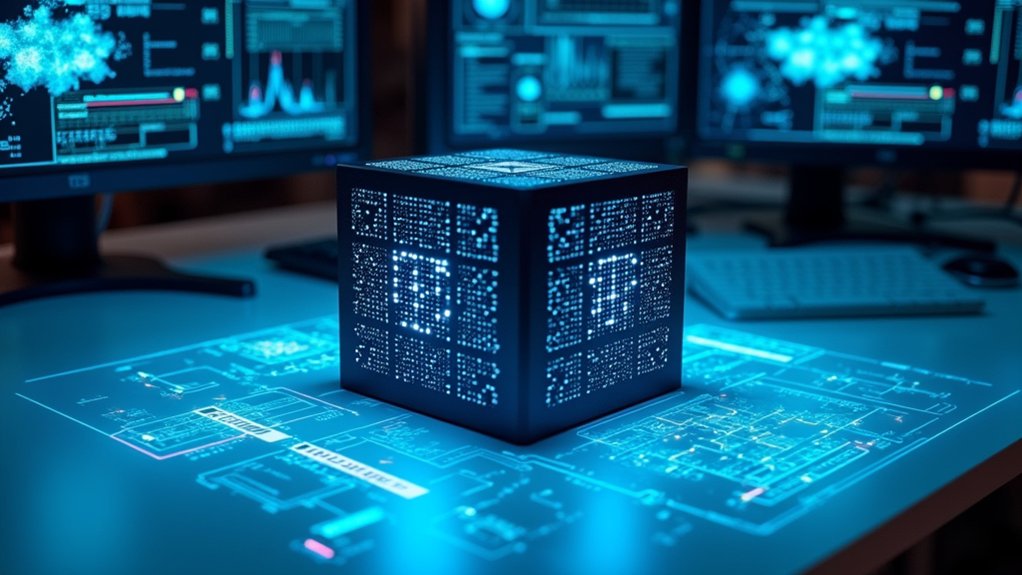Critics argue AI shouldn't be regulated because strict rules may slow innovation in a fast-changing field. Heavy regulation could create barriers for startups competing with tech giants and limit AI's economic potential—estimated at $15.7 trillion globally by 2030. Many believe tech companies understand their products better than government officials and can self-regulate more effectively. The debate continues between fostering innovation and ensuring proper oversight of these powerful technologies.

As artificial intelligence continues to transform industries worldwide, governments are racing to create rules that can manage this powerful technology. While over 60 countries are developing national AI strategies, critics of regulation point to several drawbacks that could harm innovation and economic growth.
Many tech leaders argue that strict AI rules might slow down progress in a field that's changing rapidly. They worry that heavy regulation creates barriers for new companies trying to compete with tech giants. This concern is especially relevant as AI is expected to add $15.7 trillion to the global economy by 2030, according to PwC estimates.
Regulation could stifle AI innovation exactly when its economic potential is reaching unprecedented heights.
The economic stakes are high. McKinsey research suggests AI could generate $2.6-$4.4 trillion annually across 63 different uses. In banking alone, AI might create $200-$340 billion in yearly value. With such potential, some argue that limiting AI development through regulation could mean missing out on major economic benefits.
Critics also highlight the practical challenges of regulating AI effectively. The technology evolves so quickly that rules might become outdated before they're even implemented. The ITIF claims that regulation typically slows development and reduces both quality and available options for consumers. This timing problem makes it hard for governments to create meaningful oversight without hampering innovation.
Some industry voices suggest that companies developing AI are best positioned to regulate themselves. They claim that tech firms understand their products better than government officials and can create appropriate safety measures without external rules slowing them down. A significant concern is that strict regulation could hinder the job displacement adaptation that will be necessary as AI transforms industries.
Critics of regulation often downplay how AI systems can perpetuate AI bias when trained on data containing historical prejudices, affecting disadvantaged groups disproportionately.
The debate isn't one-sided, though. Public opinion shows growing concern about unregulated AI, with Pew Research finding that 60% of Americans support more government oversight. The challenge remains finding the right balance between enabling innovation and preventing harm.
As the EU implements the world's first extensive AI law and other nations consider their approaches, the argument against heavy-handed regulation centers on a key question: Can we afford to slow down AI innovation when its economic and social potential is so vast?
Frequently Asked Questions
What Risks Do We Overlook When Regulating AI Innovations?
Regulating AI innovations may overlook vital risks, experts say.
These include stifled innovation that delays medical breakthroughs and climate solutions. Economic consequences could mean job losses and higher consumer prices.
Society might miss AI benefits in education and accessibility tools. Additionally, regulations can create a false sense of security while limiting AI development for cybersecurity.
Companies might also hide their AI work to avoid regulatory hurdles.
How Might AI Regulation Create Competitive Disadvantages Internationally?
AI regulation can create international disadvantages when countries impose different rules.
Companies in heavily regulated nations face higher compliance costs and slower product launches. Meanwhile, their competitors in less regulated markets can innovate faster and more cheaply.
This imbalance often leads to talent and investment moving to countries with fewer restrictions.
Businesses may also find themselves unable to sell their AI products in certain global markets.
Can Self-Regulation Effectively Address AI Safety Concerns?
Self-regulation can partially address AI safety concerns but has clear limitations.
Industry efforts like voluntary ethics principles and oversight boards offer flexibility and technical expertise. However, these approaches lack legal enforcement and may create inconsistent standards.
Critics point to potential conflicts of interest and limited accountability. Most experts agree that effective AI governance requires both industry self-regulation and government oversight to establish baseline standards and enforcement mechanisms.
How Do We Measure Regulatory Impacts on AI Development Speed?
Measuring regulatory impacts on AI development speed requires both quantitative and qualitative approaches. Researchers track metrics like coding time, feature implementation rates, and project completion periods before and after regulations.
Companies conduct comparative studies measuring developer productivity with different regulatory frameworks. The tech industry faces challenges isolating regulation's specific effects from other factors.
New assessment tools are being developed to better understand how rules affect innovation timelines and development efficiency.
Who Should Determine Acceptable Uses of AI Technologies?
Determining who should control AI uses remains a complex question. A multi-stakeholder approach appears most effective, combining expertise from different sectors.
Industry leaders bring technical knowledge, while government guarantees public safety and accountability. Academic researchers provide independent analysis, and civil society organizations represent diverse community interests.
This collaborative framework allows for balanced decision-making that considers innovation, safety, and ethical concerns simultaneously.









